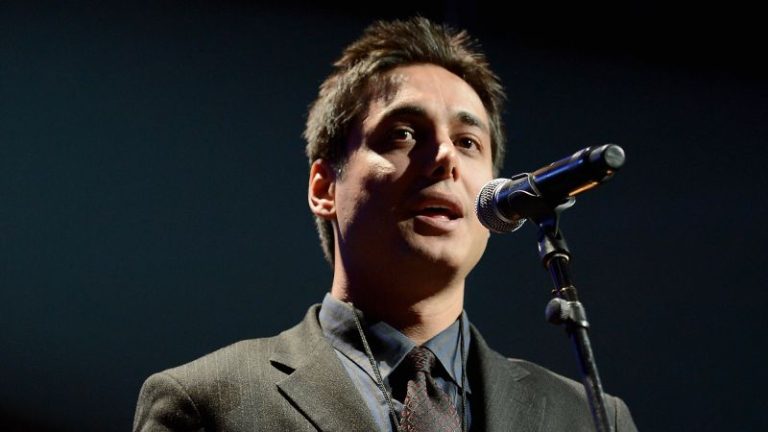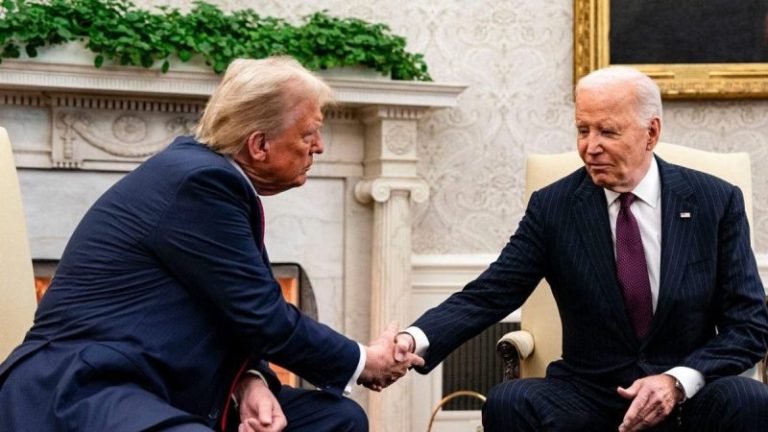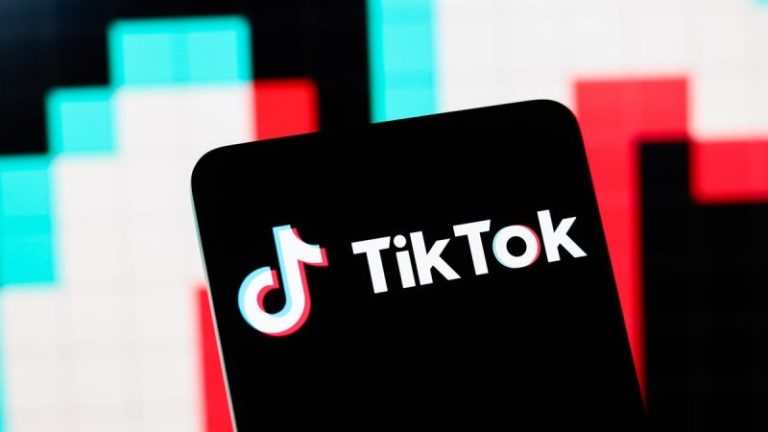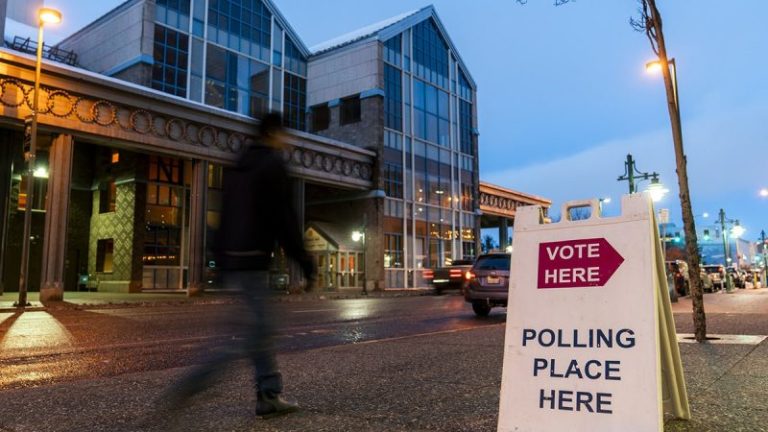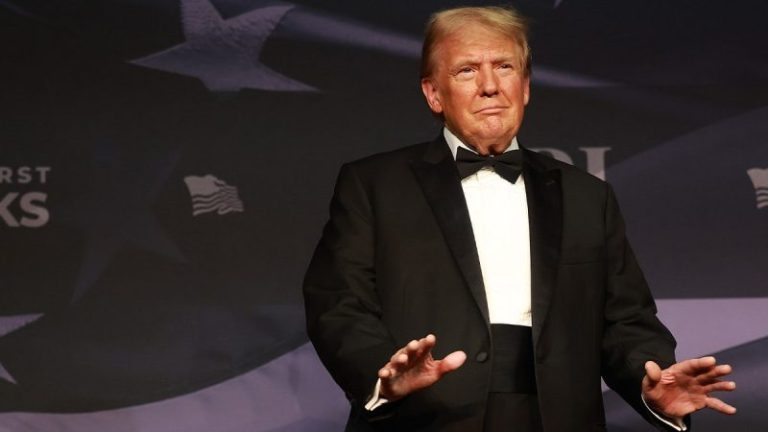Conservatives are pushing back after Democrats have criticized President-elect Trump’s Cabinet appointments for not being ‘qualified’ by pointing to several examples of members of the Biden-Harris administration and campaign having questionable qualifications for their roles.
In recent days, Democrats in Congress and in the media have blasted Trump Cabinet nominees over their qualifications, including combat veteran Pete Hegseth as secretary of defense; South Dakota Gov. Kristi Noem as secretary of homeland security; Rep. Matt Gaetz, R-Fla., as attorney general; and Robert F. Kennedy, Jr. as head of the Department of Health and Human Services (HHS), among others.
‘Three recent Trump nominees – Gaetz, Hegseth, and Gabbard – are far less qualified than Senate confirmation rejects like Bork, Tower, and Mier,’ Harvard Professor Lawrence Summers, who served in the Clinton and Obama administrations, posted on X. ‘I hope that the Senate will do its duty.’
‘Pete Hegseth is not remotely qualified to be Secretary of Defense,’ Dem. Rep. Jason Crow posted on X.
‘[Pete Hegseth] is not qualified to be the Secretary of Defense. I lead the Senate military personnel panel. All three of my brothers served in uniform,’ Sen. Elizabeth Warren, D-Mass., said, omitting his decades-long military career. ‘I respect every one of our servicemembers. Donald Trump’s pick will make us less safe and must be rejected.’
Democrats have also slammed Trump for nominating Kennedy as his HHS secretary despite a resurfaced Politico report revealing that Kennedy was being considered by Obama for Environmental Protection Agency during his 2008 presidential transition.
Since taking office in 2021, Biden has faced criticism from Republicans over several members of his administration who were believed to be lacking key attributes needed to perform the duties they were assigned in addition to scandals.
‘The Democrats are melting down over Trump‘s cabinet picks so far, but they had no problem with ‘Mayor Pete’ being appointed Secretary of Transportation with no prior qualifications,’ Link Lauren, conservative influencer and political commentator, who served as senior adviser to the Kennedy campaign, told Fox News Digital.
‘Trump won the popular vote, the electoral college, the House and the Senate. That is a mandate from the American people that they want systemic change. I understand some of Trump‘s appointees have garnered mixed reactions — even from Republicans. But let’s give Trump’s appointees a chance, then verify in time that they are doing a great job.’
Buttigieg was appointed Biden’s transportation secretary after serving as the mayor of South Bend, Indiana, for eight years, with some questioning at the time whether he had enough related experience for the job. Since taking office, Republicans have amplified those concerns after a series of perceived missteps from Buttigieg, including the fallout from the supply chain crises and the devastating train derailment in East Palestine, Ohio.
‘Take Secretary Buttigieg — his only qualifications for the job was a failed presidential campaign and time spent as a university-town mayor,’ Bradley Devlin, Politics Editor at The Daily Signal, told Fox News Digital. ‘From East Palestine to electric chargers, it hasn’t gone well for ‘Mayor Pete,’ but Buttigieg has retained his job because he’s remained loyal to the Biden administration’s attempted radical energy and transportation policies.’
Biden’s national security adviser, Jake Sullivan, who worked as a lawyer before serving as counsel to Sen. Amy Klobuchar, D-Minn., then an adviser to former Secretary of State Hillary Clinton, rose through the ranks into high-profile positions in the Obama administration but has been maligned as unqualified by Republicans over a series of national security blunders that occurred during his tenure, including the botched Afghanistan withdrawal and falsely claiming that the ‘Middle East region is quieter today than it has been in two decades’ days before Hamas killed at least 1,200 Israelis in a vicious attack.
Republicans criticized Sullivan’s role as Biden’s national security adviser, the youngest in history, due to his previous pushing of the ‘Russia collusion hoax’ as part of the Clinton campaign and his role in her State Department office amid the Benghazi cover-up.
Several other Biden officials have faced heated criticism over their qualifications in recent years, including former senior Department of Energy official Sam Brinton, who identifies as nonbinary and was arrested multiple times for baggage theft at airports.
Eric Lipka, who served as a deputy press secretary on the Biden-Harris campaign, sparked controversy earlier this year over his drag queen alter ego ‘Erotica the Drag Queen.’
Tyler Cherry, who worked in both the Biden White House and the Department of Interior, was hired and promoted despite several social media posts comparing police to ‘slave patrols,’ promoting conspiracies about Russia colluding with Trump and supporting the anti-Israel movement.
Sen. Ron Johnson, R-Wis., when asked on Thursday about the controversy surrounding Trump’s appointment of Gaetz, held up a photo of assistant HHS Secretary Rachel Levine and Brinton asked, ‘Did you ask Democratic senators about this?’
Levine, the first openly transgender federal official to be confirmed by the Senate, has faced criticism from Republicans on various issues such as sex change surgeries for minors and was labeled by a New York Post op-ed as ‘America’s No.1 gender extremist.’
Dozens of scientists from universities and environmental groups pushed for the removal of the head of Biden’s U.S. Fish and Wildlife Service, claiming she lacked the educational background required to run the agency despite securing Senate confirmation.
‘Liberals and progressives bemoaning these nominees’ alleged lack of qualifications are simply looking to protect the system they created — a government of, by and for the ‘experts’ — and that benefits them politically,’ Devlin told Fox News Digital.
‘This can be seen well beyond Biden’s cabinet picks, too. For example, the first 10 Biden-appointed appellate judges averaged merely 14 authored opinions each from the bench. Trump’s first 12 appellate judges, meanwhile, had averaged 34 over a similar time period — twice as many as Biden’s nominees.’
In 2023, Senate Minority Leader Mitch McConnell, R-Ky., blasted the qualifications of Biden’s judicial appointments saying in a press release, ‘The American people deserve the best and brightest. The Democrats are producing… something else.’
‘Xavier Becerra, HHS – not a doctor, he’s a lawyer, ex-attorney general of California Jared Bernstein, Chair of Council of Economic Advisors – not an economist, Bachelor’s degree in music, masters in sociology,’ FOX Business Evening Edit anchor Liz McDonald posted on X.
‘Jennifer Granholm, Energy Secy – no energy background, Michigan Governor Gina Raimondo, Commerce Secretary – No trade background, Gov of Rhode Island Deb Haaland, Interior Secy – New Mexico Congressman,’ she continued.
Conservative radio host and Fox News host Mark Levin pointed to Democratic vice presidential candidate Tim Walz as evidence that Democrats have been hypocritical on the issue of cabinet qualifications.
‘The Democrat Party nominated and supported Tim Walz for vice president,’ Levin posted on X.
‘I don’t want to hear from that party or its media that any of the Trump nominees are unqualified for their posts. They have demonstrated that they have no standards at all when it comes to selecting even a vice-presidential candidate. Every Trump nominee has a solid record. Perspective is very important.’
The White House did not respond to Fox News Digital’s request for comment.
The Associated Press contributed to this report.
This post appeared first on FOX NEWS

